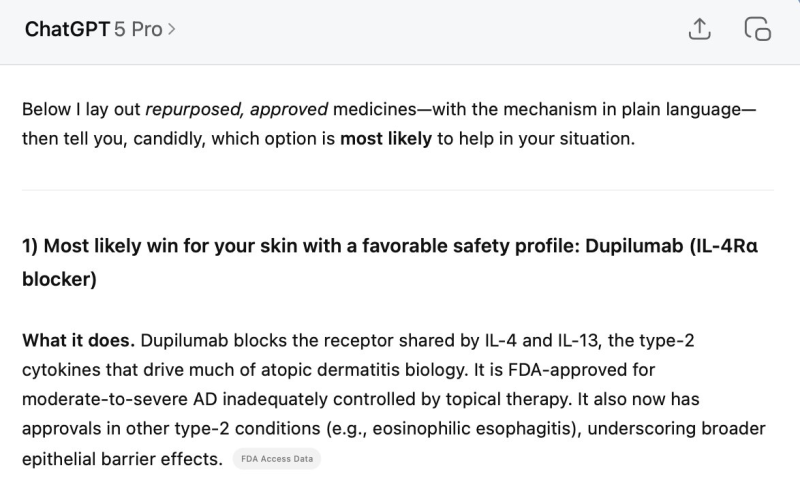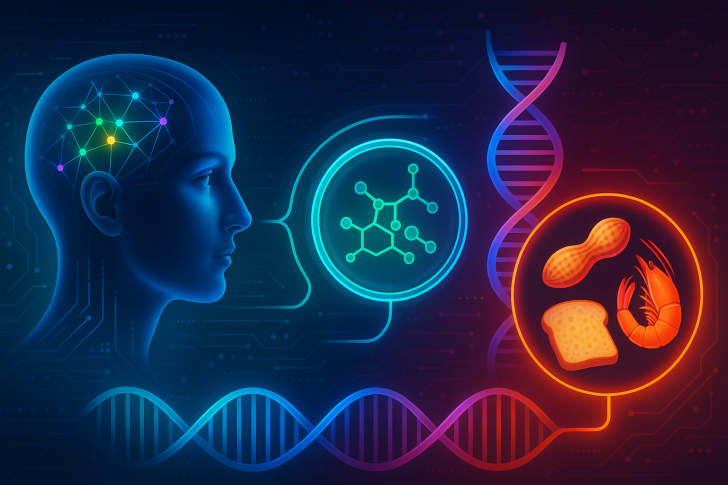● In a case shared by Dr. Derya Unutmaz, OpenAI's GPT-5 Pro made an interesting medical connection. The AI independently identified dupilumab as a possible therapy for food protein–induced enterocolitis syndrome (FPIES)—a rare and severe allergic condition. What's remarkable is that this AI suggestion aligned with actual clinical observations from Dr. Oral Alpan, who found that eight patients experienced FPIES remission while taking dupilumab for other allergies.
● FPIES causes serious gut reactions after eating certain foods, and there's currently no FDA-approved treatment for it. GPT-5 Pro's reasoning was based on dupilumab's effects on immune pathways that connect the gut and skin through IL-4 and IL-13 inhibition. However, experts stress that using dupilumab for FPIES is still off-label and needs more research. Patients shouldn't start this treatment without consulting their doctor.

● This case shows how AI could speed up drug repurposing—finding new uses for drugs that already exist. Instead of spending years and billions developing new medications from scratch, AI models like GPT-5 Pro can spot promising candidates in hours. Dr. Alpan says he plans to reach out to Regeneron (the drug's maker) about running formal clinical trials.
● The combination of AI analysis and real-world medicine could change how we discover treatments. GPT-5 Pro achieved something earlier models couldn't by recognizing how immune mechanisms work across different organs. If this approach proves reliable, it could fast-track treatments for hundreds of rare diseases that currently have no approved options.
 Eseandre Mordi
Eseandre Mordi

 Eseandre Mordi
Eseandre Mordi


